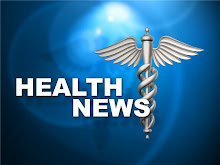Doctor Healthy Search

Custom Search

CANCER ON THE RISE IN PREGNANT WOMEN
NEW YORK (Reuters Health) Sep 19 - The number of pregnant women diagnosed with cancer has increased over the past couple of decades, a new study from Australia suggests.
In 2007, the most recent year studied, researchers found 192 out of every 100,000 pregnant and postpartum women received a cancer diagnosis - up from 112 per 100,000 women in 1994.
Researchers couldn't determine what was behind that increase in risk, but said it could be due in part to the older average age of expectant moms combined with better cancer detection.
Another explanation could be "the increased interaction with health services during pregnancy," said Dr. Christine Roberts, an obstetrics researcher at the University of Sydney who worked on the study.
Dr. Roberts said some doctors in her department had seen a few cases of expectant moms with cancer and wanted to know whether this was indicative of any increase in risk.
To try to answer that question, her group collected information from three large databases on births, cancer cases and hospital admissions in New South Wales, Australia. They had data on roughly 780,000 women who gave birth more than 1.3 million times between 1994 and 2008.
During the same period, there were about 1,800 new cancers diagnosed in pregnant women and those who'd given birth within the last year.
As diagnoses became more common over the years, pregnant women also got older, on average, the researchers noted in the obstetrics and gynecology journal BJOG.
For example, in 1994, 13% of pregnant women were over age 35, compared to almost 24% in 2007.
The risk of cancer is known to increase with age - and 35-plus women in the study were over three times more likely to get cancer compared to those under 30 in 2007. But age only accounted for a fraction of the increased cancer risk over time, the researchers found.
Dr. Lloyd Smith, who treats gynecologic cancers at the University of California, Davis, agreed that improved detection likely accounts for some portion of the increase in cases.
He pointed out that melanoma was the most common cancer diagnosed, affecting 45 out of every 100,000 pregnant or postpartum women.
Australia claims the highest rate of melanoma diagnoses in the world.
Given increasing awareness of the problem of melanoma in Australia, "they probably also have ramped up their surveillance of melanoma, so they're going to detect more," Dr. Smith, who wasn't involved in the new study, told Reuters Health.
Dr. Roberts said that despite the increase in cancer risk, it is still considered a rare event among pregnant or postpartum women.
Women in the study with cancer were more likely to plan an early birth, but "importantly there was no evidence of harm to the babies of women with cancer - they were not at increased risk of reduced growth or death," Dr. Roberts wrote in an email to Reuters Health.
She said more research on cancer treatments for pregnant women is needed.
Dr. Smith said that in his experience, treating pregnant patients has been extremely difficult. "When you have a pregnant woman who has cancer, the infant's at risk, the woman's at risk, the family is in extreme distress and they're seeking the best advice, which is often confused because no one knows quite what to do," he said.
One recent study found that chemotherapy does not appear to harm the fetus, while planning an early delivery to avoid chemo exposure to the baby is actually more risky (see Reuters report of September 27, 2011).
Subscribe to:
Post Comments (Atom)



























































0 comments:
Post a Comment